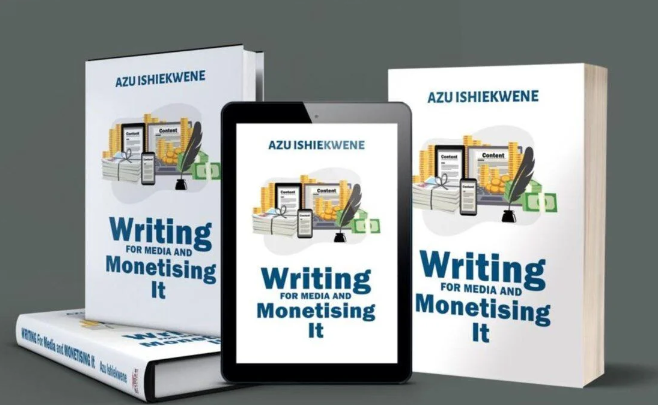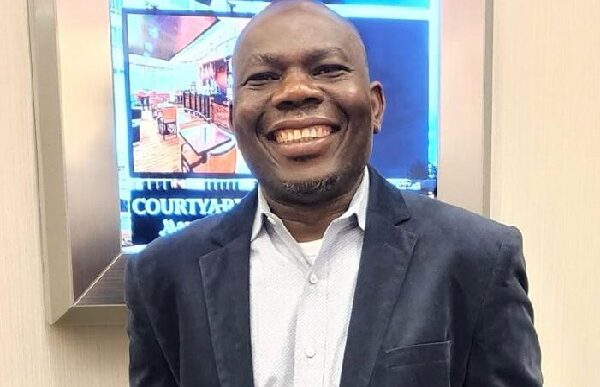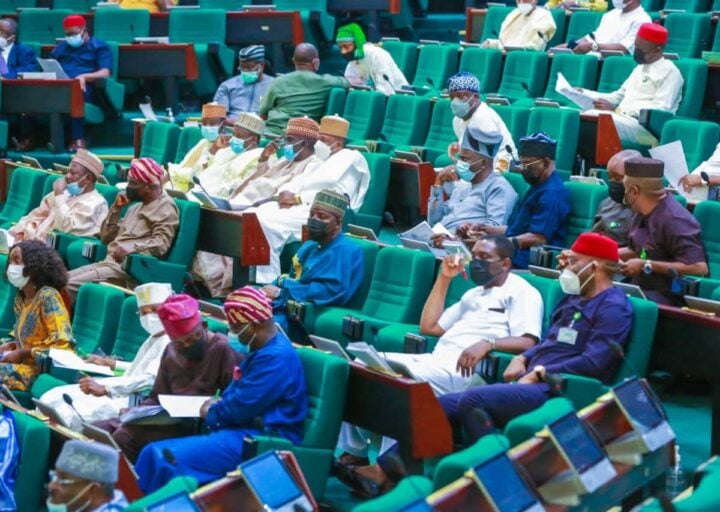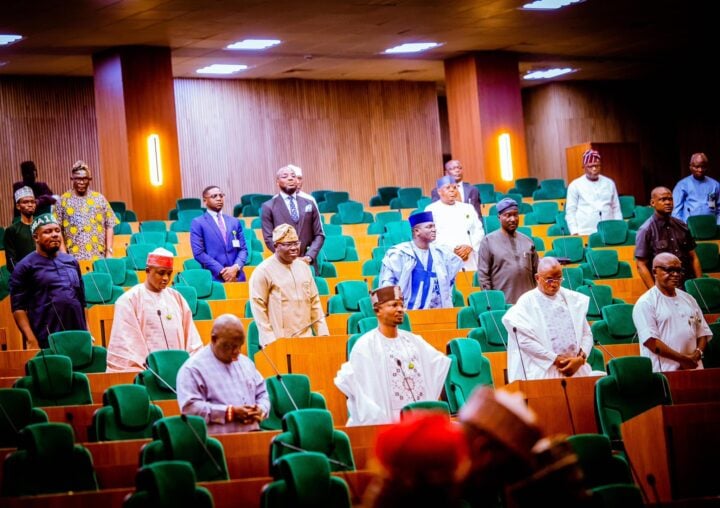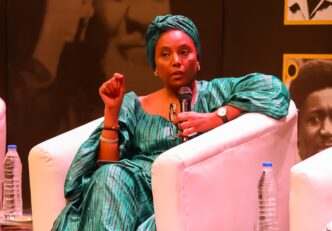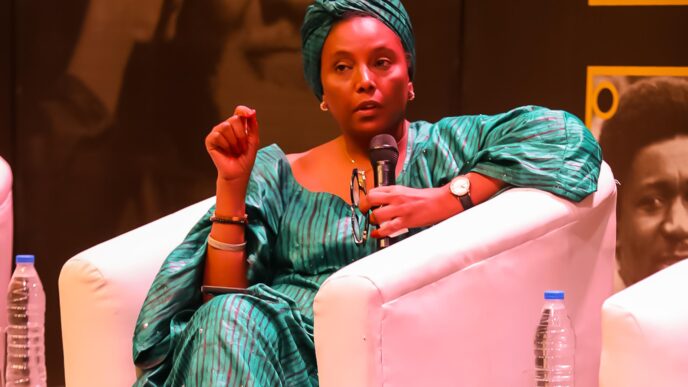It was different 16 years ago. Very different. At that time, the Economic and Financial Crimes Commission (EFCC) was relatively new and walking where angels feared to tread. That was unusual for a government institution, especially a law enforcement agency.
So unusual that one of Nigeria’s most courageous social crusaders, Gani Fawehinmi, a thorn in the government’s side, joined forces with the commission in the fight against corruption even when the man he loved to hate, Olusegun Obasanjo, was president.
But you couldn’t blame Gani. The first decade after transitioning to civilian rule in 1999 was an “enough moment” for Nigeria. It was a time when it became clear that among the country’s many problems, corruption would either kill it or it would have to kill corruption.
Like Ribadu, like Githongo
Advertisement
Nuhu Ribadu, an assistant commissioner of police from a family with a distinguished record in the security services, had the most unwanted job of being the first chairman of the EFCC. He took the job when his counterpart in Kenya, John Githongo, was famously saying the most significant threat in fighting corruption is corruption itself. It would fight back.
Githongo was right. Corruption in Kenya fought him back so furiously that it exiled him to the UK. You can read the rest of the story in Michela Wrong’s It’s Our Turn to Eat. To help Ribadu deal with his own misery back home, the press pitched in big time. It took it as its own war to the point where the commission was often accused of media trial.
I felt obliged to document parts of that era in the book The Trial of Nuhu Ribadu: A Riveting Story of Nigeria’s Anti-corruption War, published by Spectrum Books. That was in 2008, when, as my mother would have said, the world was asleep. There was no Instagram, and Twitter was only two years old.
Advertisement
Mack Zuckerberg was 19, and Facebook was four. That was the era when respectable newspapers scooped one another by paying the author to be the first to serialise the book, while street rags ripped the same book for fast bucks. I know that thanks to technology, there has been a somewhat deadly mutation, but that’s not where I’m going.
Journey to a sequel
My point is that when I wrote my first book 16 years ago, the options and opportunities for sharing – or promotions – were minimal. Of course, big-time authors sold in millions even decades ago. But newbies like me still struggled with only perhaps a cat hell’s chance of making their voices heard. Not so anymore.
That’s one of the reasons why promoting my new book, Writing for Media and Monetising It, has been different. Unlike The Trial of Nuhu Ribadu, which you’ll have to scratch your head to remember if it was ever written and who the author was, this new book has been in your face from day one!
Advertisement
I have thoroughly enjoyed the experience of promoting it – being in front, sharing moments with followers and readers whose feedback, sometimes hilarious, sometimes cryptic, but mostly enthusiastic, has been altogether encouraging. After seeing the promotional videos, some folks have even jokingly asked if I had not missed my career train!
Beyond Nollywood things
Much of the impact of the promotional tour resonated during the public presentation of the book in Abuja on Wednesday, June 26 – an event that had one of the best collections of professionals and persons from all walks of life. It was conceived, developed, and executed by friends working assiduously in the background with LEADERSHIP and Premium Times Books.
You’ll have to believe me when I say Writing for Media and Monetising It is much more than the stunts and amateur videos. It’s a book written from my heart. The Trial of Nuhu Ribadu is different, not for a shortage of heart but for the nature of the narrative. It’s a snapshot of what, at the time, was an evolving history.
Advertisement
This new book was, to paraphrase Francis Bacon, part of the repayment of the debt to my profession. I wrote this book to give back to the craft that fostered me.
The change we’re living through is relentless, a point poignantly made by Dr. Reuben Abati, who reviewed the book, and the cross-generational panel of discussants chaired by Professor Abiodun Adeniyi. There is a shortage of resources, especially for young journalists, writers, and content creators, who must adapt well to the changing seasons. This book tries to fill the gap.
Advertisement
As contained in the statement by PT Books when the book was released, “navigating the exciting maelstrom that the media – and its various iterations or strands of practice – have become.” I couldn’t agree more.
Clear, simple and concise writing is a craft. Writing for Media and Monetising It, is not only about such writing. It is also about how to get compensation for it.
Advertisement
What’s in a book?
The book provides a step-by-step approach, with many examples and insights on media law, writing for impact, syndication, generative AI, and managing feedback and trolls, among other things.
Advertisement
The unique quality of the book is that it combines the seasons that fostered my career, to borrow from Sonala Olumhense’s blurb, with a narrative of how younger writers can take advantage and be rewarded by evolving trends in the media.
This 15-chapter book also benefits hugely from interviews with some of the best, from Abimbola Adelakun, Fisayo Soyombo to Ruona Meyer and from Farooq Kperogi, Sam Omatseye to Toyosi Ogunseye, and Pulitzer Prize winner Dele Olojede, who gave an interview for the first time in 13 years.
One matter that has come up repeatedly, both before and after the presentation, is whether it is possible to “make money” in the media today and, if so, whether that point is sufficiently addressed in the book. Unlike The Trial of Nuhu Ribadu, which tries to capture an evolving attempt to tackle systemic corruption and its inherent challenges, the new book examines the threats and opportunities in the media. Even though it focuses on journalists and journalism, its broader scope is how to get reward for literary work, especially in a convergent world.
The heart of the matter
The summary of the minister of information and national orientation, Mohammed Idris, was that “The book significantly closes the gap between practice and entrepreneurship – a gap that has impoverished the media industry!” Of course, the media is not the only “victim” of the harsh economic tide.
But the point in Idris’s intervention, amplified by the panel comprising Kadaria Ahmed, Ahmed Shekarau and Emeke Ishiekwene, is also about adaptation and research – metrics that need not only be measured by the quantum of immediate financial gains. Scale, niche and leverage of a content creator’s cultural assets will deliver benefits, ultimately.
So, what next? That was another great question after Wednesday’s presentation. Will it take another 16 years before a sequel? There’s never been a holiday between The Trial of Nuhu Ribadu and Writing for Media and Monetising It. But this work, which greatly benefited from the interviews and resources of great content creators, strongly suggests that to be more, we must challenge ourselves to do more!
Ishiekwene is the editor-in-chief of LEADERSHIP and author of the new book Writing for Media and Monetising It.
Add a comment

